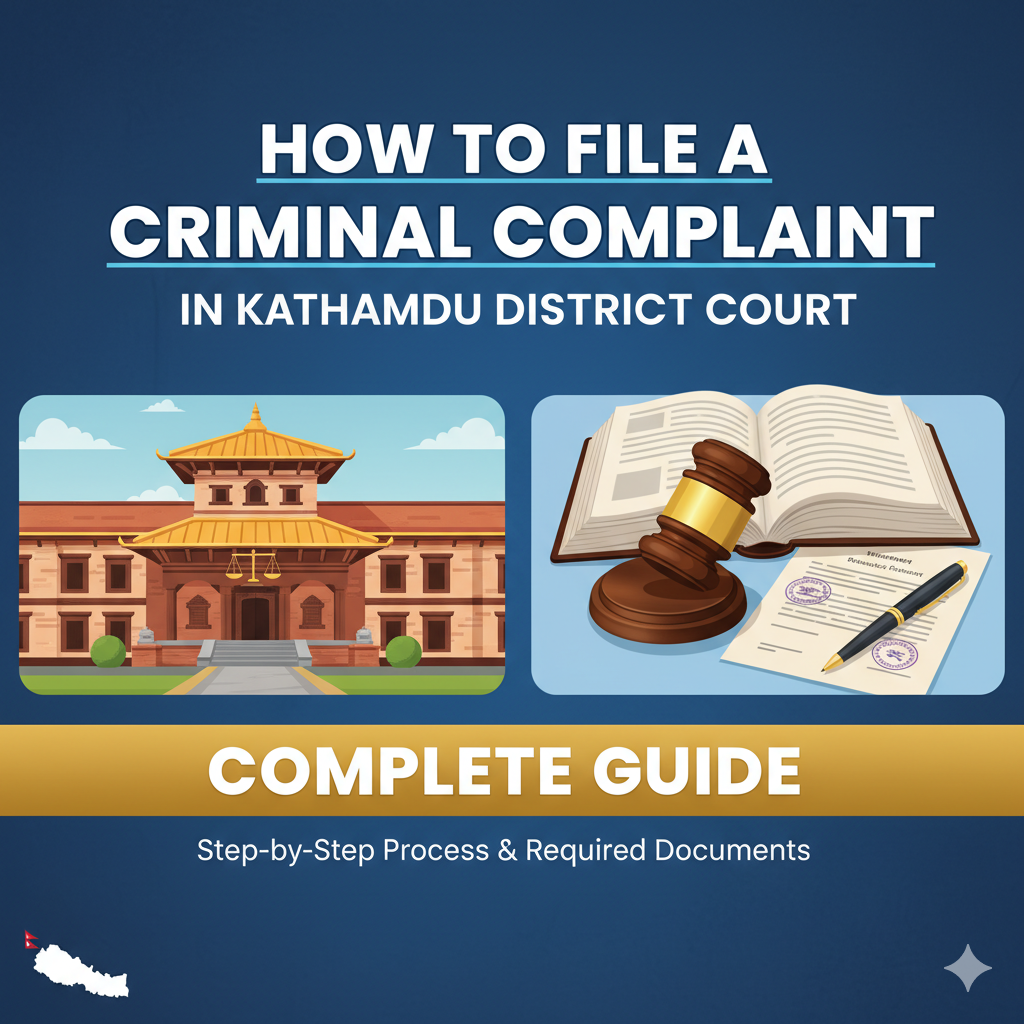
New Police Investigation System Changes Everything
Nepal’s banking landscape has been transformed. Police investigation has been made mandatory for cheque bounce complaints, replacing the previous system where cases could be filed directly in court. This revolutionary change became effective in May 2025.
Key Changes in Nepal’s Cheque Bounce Law
Mandatory Police Investigation
All cheque bounce cases must now be reported to police first. Direct court filing has been eliminated. This streamlined approach reduces court burden and ensures proper investigation.
Penalty Structure Updates
The new law has revised punishment categories:
| Offense Type | Previous Penalty | New Penalty |
|---|---|---|
| Simple Cheque Bounce | Up to 3 months jail | 1 month to 2 years imprisonment |
| Fine Amount | Up to Rs. 3,000 | Fines have been slashed |
| Recovery | Principal + Interest | Principal + Interest |
How to File a Cheque Bounce Case in Nepal
Step 1: Police Complaint
Report the bounced cheque to the nearest police station. Required documents include:
- Original bounced cheque
- Bank return memo
- Demand notice (if sent)
- Identity documents
Step 2: Police Investigation
Police will conduct mandatory investigation. No direct court filing is permitted under the new system.
Step 3: Legal Proceedings
After police investigation, formal legal proceedings begin through proper channels.
Types of Cheque Bounce Cases
Criminal Cases
Filed under Banking Offense and Punishment Act, 2064. Punishments include imprisonment up to three months and recovery of the cheque’s value.
Civil Cases
Filed under Negotiable Instruments Act. Five years timeframe is allowed for filing complaints in District Court.
Penalties and Punishments
Imprisonment Terms
- Minimum: 1 month
- Maximum: 2 years
- Depends on offense severity
Financial Penalties
- Recovery of principal amount
- Interest calculation
- Additional fines as determined
Legal Remedies Available
Under Banking Offense Act
Recovery of cheque amount plus interest, with imprisonment up to 3 months or fine up to Rs. 3,000.
Under Negotiable Instruments Act
Civil remedies focus on debt recovery and compensation.
Timeline for Filing Cases
| Act | Time Limit | Court Type |
|---|---|---|
| Banking Offense Act | 1 year | Through Police |
| Negotiable Instruments Act | 5 years | District Court |
How to Defend Against Cheque Bounce Cases
Valid Defenses
- Payment already made
- Cheque alteration
- Lack of consideration
- Fraud or forgery
Documentation Required
Strong defense requires proper documentation and legal representation.
Prevention Strategies
For Businesses
- Verify bank account details
- Confirm sufficient funds
- Maintain proper records
- Use electronic payment methods
For Individuals
- Check account balance
- Avoid post-dated cheques
- Keep transaction records
- Communicate with payees
Frequently Asked Questions (FAQs)
Q1: Can I still file directly in court?
No. The new law requires police investigation first. Direct court filing has been eliminated.
Q2: What happens if police don’t investigate?
You can approach higher authorities or seek legal counsel for proper redressal.
Q3: Are penalties the same for all amounts?
No. Penalties vary based on cheque amount and circumstances.
Q4: Can settlement happen during police investigation?
Yes. Mutual settlement is possible during any stage of proceedings.
Q5: What documents do I need for filing?
Original cheque, bank return memo, demand notice, and identity documents.
Q6: How long does the process take?
Duration varies but police investigation must be completed within reasonable time.
Q7: Can I withdraw the case after filing?
Yes, through proper legal procedures and mutual consent.
Q8: What if the accused person is not traceable?
Police will take necessary steps to locate the accused through proper channels.
Impact on Business Environment
The new law creates more structured approach to cheque bounce cases. Businesses must adapt to police-first reporting system. This change aims to reduce court congestion while ensuring proper investigation.
Legal Professional Guidance
Complex cases require expert legal assistance. Choose lawyers experienced in banking offenses and negotiable instruments law. Proper legal representation ensures better outcomes.
Conclusion
Nepal’s new cheque bounce law represents significant shift in legal procedures. The streamlined police investigation system aims to eliminate previous provisions and create more efficient processing. Understanding these changes helps businesses and individuals navigate the legal landscape effectively.
The mandatory police investigation system ensures thorough case examination before court proceedings. This systematic approach protects both creditors and debtors while maintaining legal integrity.
Stay informed about legal developments and seek professional guidance when dealing with cheque bounce cases. The new law requires careful attention to procedures and timelines for successful resolution.



